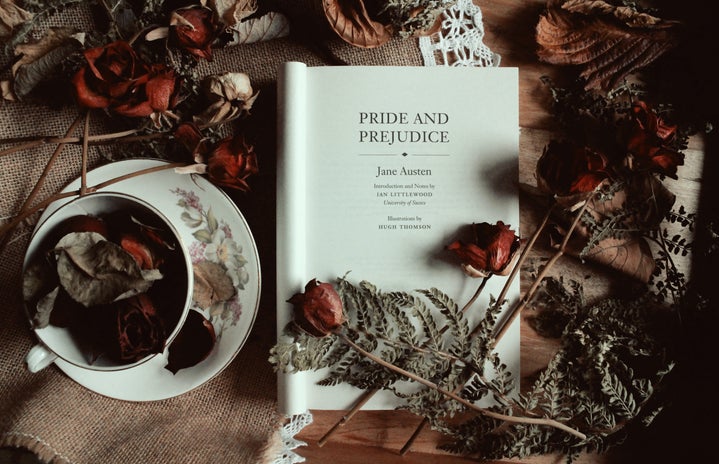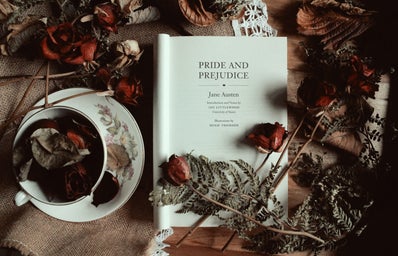I’ve always read about and seen various online praises of “Pride and Prejudice” character Fitzwilliam Darcy and being let down by how horrible men in classic literature can be. I didn’t think much of it. After reading the book and watching it on screen, I knew I had gone past the point of no return of being Mr. Darcy’s number one fan. What makes him so admirable can be boiled down in to these three points:
1. He’s written by a woman, for an audience of women
While the number of women writers has definitely increased since the publication of “Pride and Prejudice” in 1813, the field — like most fields — still underrepresents us. Austen published her writing anonymously, which was common among other women at the time to avoid the tarnished reputation that came with being a full-time writer. Women’s want for respect and kindness has made Mr. Darcy hold up over time. This has never changed, even as conventions for love and marriage have.
2. He knows the importance of dramatics
The grand romantic gesture can be something used to put a woman on the spot and make her feel like the villain if she doesn’t accept. Mr. Darcy’s grand romantic gesture (in film, at least) where he stormed through fields at sunrise, jumping into a lake in a fit of melancholy, or his heart-pounding use of “ardently” goes over much better because he still keeps Elizabeth’s opinions in mind. All of this is a private affair, and I believe that’s the most important part. It would be embarrassing for both parties to have a proposal rejected in public and as the woman, most of the blame would be shifted on to Elizabeth. His grand romantic gestures are better than most because it prioritizes the romance over the grandeur — I’m sure this is a very 21st century take on this, and maybe the privacy of all of his proposals are just a reflection of Darcy’s canonical anti-social and anxious personality, but I believe that his flair for dramatic gestures still reflects positively on him. This goes into my last point:
3. Simply, he’s respectful
Today’s world has the same problem it had 200 years ago — men. What’s different about Darcy is that when he’s rejected, he doesn’t cry about how he’s a “nice guy” and that it’s all Elizabeth’s fault. He leaves, reinvents himself, comes back and tells her that if she still doesn’t like him that he will back off. It sounds like the bar is being set pretty low but unfortunately, some men can’t even get that high. While much of the reason Darcy changes is spurred by Elizabeth’s criticism of him, he doesn’t change for the sole reason of getting her to accept his proposal. Instead, he does it because he realises there are some real flaws in his character. After improving himself, he doesn’t expect to be rewarded. I would guess he doesn’t see Elizabeth as a reward, but rather as a whole and complex person with thoughts and feelings outside of their relationship. When her little sister’s elopement threatens to ruin the family, Darcy intercedes and fixes the situation — not because he thought it would make Elizabeth think of him as a hero, but because he didn’t want to see her so upset. He didn’t even tell her what he had done initially. He genuinely changes into a better person and acknowledges what he’s done wrong, showing his respect for Elizabeth and the others in his life.
Overall, what makes the character keep up over time is that he is always respectful and willing to admit he’s wrong — rare for men both of his time and today. He doesn’t expect affection in return for the nice things he does, he doesn’t blame Elizabeth for rejecting a “nice guy” like him.
Take notes.


